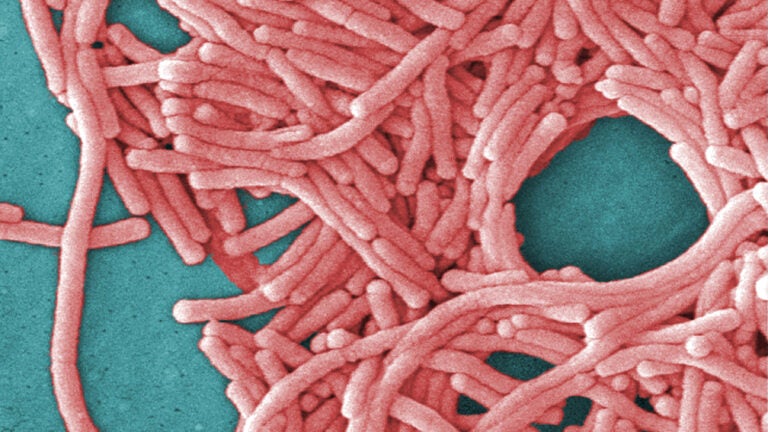Lincoln, New Hampshire: Lincoln Nh Legionnaires Disease

Lincoln, New Hampshire, is a charming town nestled in the heart of the White Mountains. Its picturesque landscape and thriving community have made it a popular destination for outdoor enthusiasts, families, and retirees alike. This town boasts a rich history, diverse demographics, and a vibrant local economy.
History of Lincoln, New Hampshire
Lincoln’s history dates back to the 18th century, when it was initially settled as part of the larger town of Franconia. In 1828, it was incorporated as a separate town and named after President Abraham Lincoln. The town’s early economy was heavily reliant on agriculture and lumbering. However, the arrival of the railroad in the late 19th century spurred the development of tourism, which has become a significant contributor to the local economy.
Demographics and Population of Lincoln
Lincoln has a relatively small population, with approximately 2,500 residents. The town’s demographics are characterized by a mix of families, retirees, and young professionals. The median age in Lincoln is slightly above the national average, reflecting the presence of a significant senior population.
Economy and Industries in Lincoln
Lincoln’s economy is diverse, with a strong emphasis on tourism, hospitality, and outdoor recreation. The town is home to numerous ski resorts, hiking trails, and other attractions that draw visitors from all over the world. In addition to tourism, Lincoln also has a growing presence in the healthcare, education, and technology sectors.
Geography and Climate of Lincoln
Lincoln is situated in the heart of the White Mountains, a region known for its stunning natural beauty. The town is surrounded by rolling hills, dense forests, and sparkling lakes and rivers. The climate in Lincoln is characterized by four distinct seasons, with cold winters, warm summers, and vibrant fall foliage.
Legionnaires’ Disease

Legionnaires’ disease is a serious type of pneumonia caused by bacteria called Legionella. These bacteria are commonly found in water sources like lakes, rivers, and even your showerhead. While most people exposed to Legionella don’t get sick, those who do can experience severe respiratory issues.
Understanding Legionella Bacteria, Lincoln nh legionnaires disease
Legionella bacteria thrive in warm, stagnant water. They can multiply and spread through water systems, including air conditioning units, hot tubs, and even decorative fountains. When water droplets containing Legionella bacteria are inhaled, they can cause infection.
Symptoms of Legionnaires’ Disease
Legionnaires’ disease typically presents with flu-like symptoms, including:
- High fever
- Cough
- Muscle aches
- Headache
- Shortness of breath
- Diarrhea
- Confusion
The symptoms usually appear between 2 to 10 days after exposure to Legionella bacteria.
Risk Factors for Legionnaires’ Disease
Certain factors can increase your risk of contracting Legionnaires’ disease. These include:
- Age: Older adults are more susceptible to Legionnaires’ disease.
- Smoking: Smoking weakens the immune system, making you more vulnerable to infection.
- Chronic health conditions: People with weakened immune systems, such as those with diabetes, kidney disease, or cancer, are at higher risk.
- Travel: Traveling to areas with poor sanitation or contaminated water systems can increase your exposure risk.
Diagnosing and Treating Legionnaires’ Disease
Diagnosing Legionnaires’ disease involves:
- Medical history and physical exam: Your doctor will ask about your symptoms and medical history.
- Chest X-ray: This can show signs of pneumonia in your lungs.
- Blood tests: Blood tests can detect Legionella antibodies in your blood, indicating an infection.
- Urine tests: Urine tests can also detect Legionella antigens, which are proteins produced by the bacteria.
Treatment for Legionnaires’ disease typically involves:
- Antibiotics: Antibiotics are the primary treatment for Legionnaires’ disease. The specific type of antibiotic will depend on the severity of your infection.
- Oxygen therapy: If you have difficulty breathing, you may need oxygen therapy.
- Hospitalization: In severe cases, you may need to be hospitalized for close monitoring and treatment.
Investigating the Link

Lincoln, New Hampshire, has experienced a few reported cases of Legionnaires’ disease, raising concerns about the potential sources of the bacteria and the overall health risks associated with this illness.
Reported Cases of Legionnaires’ Disease in Lincoln, NH
Publicly available data on specific cases of Legionnaires’ disease in Lincoln, NH, is limited. However, reports suggest that there have been a few cases diagnosed in the town, particularly in recent years. It’s important to note that not all cases of Legionnaires’ disease are reported, so the actual number of cases might be higher.
Potential Sources of Legionella Bacteria in Lincoln
Legionella bacteria can thrive in various environments, especially warm water sources. Potential sources of Legionella bacteria in Lincoln could include:
- Water Systems: Lincoln’s water system, including municipal water lines, plumbing in buildings, and cooling towers, could potentially harbor Legionella bacteria if not properly maintained.
- Natural Water Sources: Lakes, rivers, and other natural water sources in the area could also be potential sources of Legionella bacteria, especially if they are stagnant or have warm water temperatures.
- Hot Tubs and Spas: Hot tubs and spas, particularly those that are not properly maintained and disinfected, can provide a breeding ground for Legionella bacteria.
- Air Conditioning Systems: Legionella bacteria can also be found in cooling towers and other air conditioning systems, especially if they are not properly maintained.
Prevalence of Legionnaires’ Disease in Lincoln Compared to National Averages
Data on the prevalence of Legionnaires’ disease in Lincoln, NH, compared to national averages is not readily available. However, national statistics indicate that Legionnaires’ disease is a relatively uncommon but serious illness. The Centers for Disease Control and Prevention (CDC) estimates that there are approximately 8,000 to 18,000 cases of Legionnaires’ disease reported in the United States each year.
Public Health Initiatives and Concerns
Public health officials in Lincoln, NH, are aware of the potential for Legionnaires’ disease and have implemented measures to address the risks. These measures may include:
- Water Testing: Regular testing of water systems, including municipal water lines and private wells, to detect the presence of Legionella bacteria.
- Education and Outreach: Public education campaigns to inform residents about the risks of Legionnaires’ disease and how to prevent it.
- Building Codes: Enforcing building codes that require proper maintenance of water systems and air conditioning systems to minimize the risk of Legionella growth.
Lincoln nh legionnaires disease – Yo, Lincoln, NH is dealing with a serious case of Legionnaires’ disease. It’s totally wild, like, people are getting sick and stuff. If you’re in the area, check out this article for the latest updates. It’s important to stay informed about what’s going on and take precautions, you know?
Legionnaires’ disease is no joke, so be safe out there.
Yo, so this Legionnaires’ disease outbreak in Lincoln, NH is totally wild. It’s like, super scary, you know? I’m just glad I’m not there. Speaking of scary, did you know it’s like 8 pm in Israel right now?
Check it out here. Anyway, back to the Legionnaires’ disease thing, it’s crazy how fast it can spread. Hopefully, they get it under control soon.
